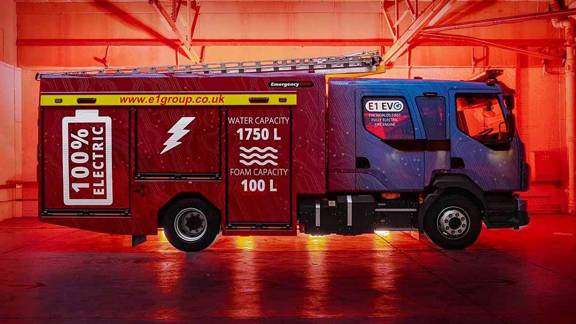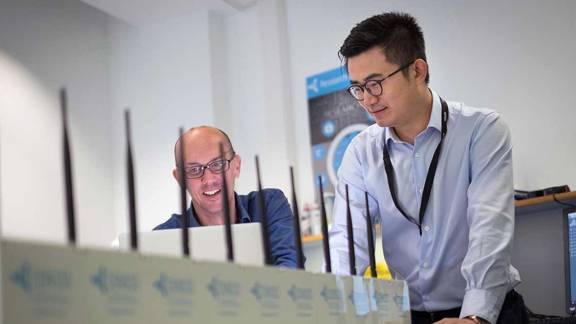Innovation support
Innovative businesses grow faster. Having the right approach to innovation can add real value to your products, services and processes. Learn how our innovation support service can help you review your innovation activities, nurture new ideas and implement changes to help grow your business.
Are you looking to use new ideas to develop more effective products, services or processes?
Successful innovation requires a solid understanding of market opportunities and customer needs. It's also important to set out a clear strategy before you begin.
More than half of all business growth is a result of some form of innovation – so it’s crucial to take a well-informed approach that will help your business gain the maximum benefit. Our innovation support service can help you do this.
How we can help
Our expert advisers provide guidance and support, helping businesses to achieve their innovation ambitions and drive growth.
Drawing on a wide range of skills and experience, we can help you:
- Understand important areas of innovation that are relevant for your business
- Review and analyse your innovation activities
- Develop and implement changes that will help you meet your innovation and business goals
Am I eligible?
Our innovation support service is available to companies based in Scotland. To fully benefit from the service, it's best that you:
- Have a formed company, including a company registration number
- Have a business plan and/or a project plan
- Have conducted some market research
- Are able to finance a significant part of your innovation project
If you haven't formed your company yet, Business Gateway can help you get started.
Read Business Gateway's guide to starting a businessopens in a new window
Our innovation support
We take a hands-on approach to innovation support, coaching and mentoring businesses so they can get the most out of their innovation efforts.
We’ve delivered a one-to-many support programme to over 100 companies. We'll help you:
- Stimulate and create new ideas
- Develop products and processes
- Launch your innovations onto the market
- Manage and protect your intellectual property (IP)
Our expert advisers will work closely with your business to develop a unique innovation roadmap based on the latest innovation theory, thinking and practice. This will be carefully aligned with your overall business strategy.
Once this roadmap is in place, we’ll help you deliver on your ambitions. Depending on your needs, we can provide workshops, connect you with relevant research and development centres, or help you understand the grants and funding available to your business.
You'll also have access to our Innovation Ecosystem – a bank of resources and tools that will give you a clearer sense of your innovation readiness.
Manage your intellectual property and assets
Beyond helping you innovate, we can offer you free and impartial advice to help you identify and exploit your business's IP assets.
Tell us about your project
Once we know more about your innovation project, our advisers can:
- Give you information to help support your project
- Take you through the support we can offer and highlight the support available from our partners
- Invite you to meet with our specialist advisers
If you don't think you meet all the criteria right now, we might still be able to help.
Enquire about innovation support
Our team are on hand to answer your questions and explain the support we can offer to help your business succeed.
Other sources of support
Innovate UK Business Growth services
We work in partnership with Innovate UK – the UK innovation agency – to deliver the Innovate UK Business Growth services.
These publicly funded services are available to all innovative small and medium-sized enterprises (SMEs) with high growth potential, including Innovate UK grant winners.
The Innovate UK Business Growth team can help your business build capacity to drive innovation. Our innovation and growth specialists will use their expertise and networks to help you:
- Access the innovation ecosystem
- Protect and harness your intellectual property (IP)
- Improve your innovation management
They can also help you grow and scale your business by providing support to:
- Identify the right finance and funding options
- Become investment ready
You'll also be well placed to break into new international business markets and adjacent sectors thanks to the team’s connections, expertise and targeted global programmes.
Learn more about Innovate UK Business Growth support initiativesopens in a new window
You might also be interested in
-

Sustainability-driven innovation
Sustainability-driven innovation can help you reduce costs, build resilience and gain a real advantage. Learn six ways to use it in your business.
-

How to develop a successful innovation strategy
Find out how business innovation boosts growth and resilience, and learn five steps to help your innovation strategy succeed.
-

Exports and international markets
Find new customers for innovative products and services in international markets. Plus, use our export assessment tool to understand what export stage you’re at, get your next steps, and find relevant support.
-
Sign up to email updates
Stay up to date with the latest events, webinars, funding opportunities and industry news.
